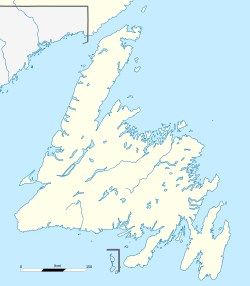미각
Palate| 미각 | |
|---|---|
 머리랑 목덜미. | |
 입천장에 토러스팔라티누스균이 나타남 | |
| 세부 사항 | |
| 식별자 | |
| 라틴어 | 팔라툼 |
| 메쉬 | D010159 |
| TA98 | A05.1.01.102 |
| TA2 | 2778 |
| FMA | 54549 |
| 해부학 용어 | |
입천장(/ppéltt/)은 인간과 다른 포유동물에서 입천장이다.그것은 구강과 [1]비강을 분리한다.악어에게도 비슷한 구조가 발견되지만, 대부분의 다른 네발동물에서는 구강과 비강이 제대로 분리되어 있지 않습니다.입천장은 앞부분, 뼈 경구개, 뒷부분, 다육질 연구개(또는 늑골)[2][3]의 두 부분으로 나뉩니다.
구조.
신경절약
삼차 신경의 상악 신경 지점은 미각에 감각 신경계를 공급한다.
발전
입천장은 태어나기 전에 형성된다.
변화
융접이 불완전하면 구개열이 발생한다.
기능.
입의 다른 부분과 함께 기능할 때, 입천장은 특정한 소리를 내는데, 특히 연수개,[4] 구개음, 후두개음, 치경구개음, 구개음 그리고 구개음이다.
역사
어원학
영어의 동의어 미각과 구개, 그리고 관련된 형용사 구개(palatine bone)는 모두 고대 프랑스어 구개(palat)를 통해 라틴어 구개(palatum)에서 유래한 것으로, 그들의 영어 파생어를 좋아하는 단어는 [5]입의 "지붕"을 가리킨다.
라틴어 palatum은 알려지지 않은 (아마도 에트루리아어) 궁극의 기원이며 궁전을 뜻하는 라틴어 palatium의 근원이기도 합니다. palatium은 궁전과 영어 단어 palatine의 다른 감각이 유래한 것이지 [6]그 반대는 아닙니다.
입천장이 한때 미각의 자리로 여겨졌던 것처럼, 미각은 또한 "식별적인 미각"이라는 말처럼 이 감각 자체를 지칭할 수 있다.더 나아가, 와인이 떡갈나무 미각을 가지고 있다고 할 때처럼 음식의 맛(특히 맥주나 와인)을 미각이라고 부를 수 있다.
「 」를 참조해 주세요.
참고 문헌
- Saladin, Kenneth (2010). Anatomy and Physiology: The Unity of Form and Function. New York: McGraw Hill. p. 256.
- Thompson, Gale (2005–2006). World of Anatomy and Physiology. Thompson Corporation. pp. Palate (Hard and Soft Palate).
레퍼런스
- ^ Wingerd, Bruce D. (1811). The Human Body Concepts of Anatomy and Physiology. Fort Worth: Saunders College Publishing. p. 166. ISBN 0-03-055507-8.
- ^ Wingerd, Bruce D. (1994). The Human Body Concepts of Anatomy and Physiology. Fort Worth: Saunders College Publishing. p. 478. ISBN 0-03-055507-8.
- ^ Goss, Charles Mayo (1966). Gray's Anatomy. Philadelphia: Lea & Febiger. p. 1172.
- ^ Goss, Charles Mayo (1966). Gray's Anatomy. Philadelphia: Lea & Febiger. p. 1201.
- ^ Harper, Douglas. "palate (the entry for)". Online Etymology Dictionary. Retrieved 10 September 2011.
palate – late 14c., 'roof of the mouth,' from O.Fr. palat, from L. palatum 'roof of the mouth,' perhaps of Etruscan origin. Popularly considered the seat of taste, hence transferred meaning 'sense of taste' (1520s).
- ^ Harper, Douglas. "palatine (the entry for)". Online Etymology Dictionary. Retrieved 10 September 2011.
palatine (adj.) – mid-15c., from M.Fr. palatin (15c.), from M.L. palatinus 'of the palace' (of the Caesars), from L. palatium (see palace). Used in English to mean 'quasi-royal authority.' Reference to the Rhineland state is from c.1580.


